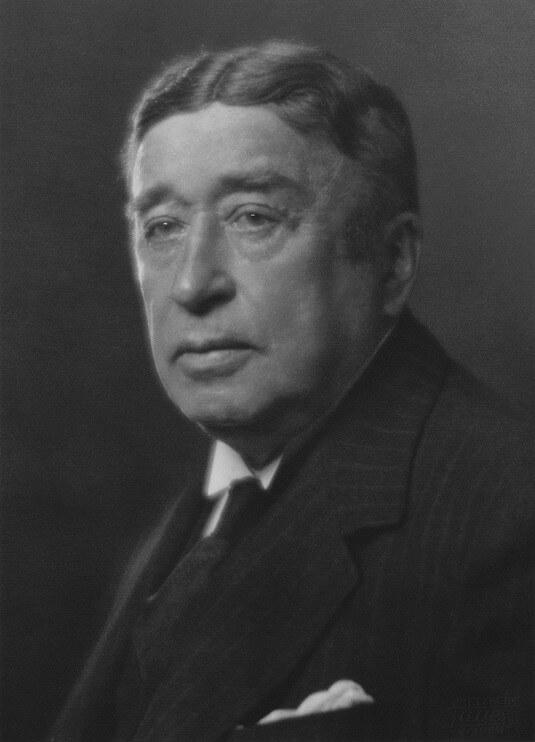
Founding and early expansion (1885–1900)
On November 1, 1885, Moravian-Austrian merchant Josef Weinberger and Carl Hofbauer opened an “art and music store” at Kärntnerstraße 34 in Vienna—the foundation of today's publishing group. As early as 1887, the young company received a license to print opera and operetta materials. In 1889, a branch was established in Leipzig (in cooperation with the Hofmeister publishing house). In 1890, Weinberger amicably parted ways with Carl Hofbauer and moved the Weinberger publishing house to its own premises, initially on Kohlmarkt, and then, due to its rapid expansion at the turn of the century, to Maximilianstraße 11 (today Mahlerstraße), near the Hofoper. In the second half of the 1890s, Weinberger secured an extensive repertoire through acquisitions, including the long-established Viennese publishing house Artaria & Co. (1894), and concluded exclusive contracts with Gustav Mahler, among others.
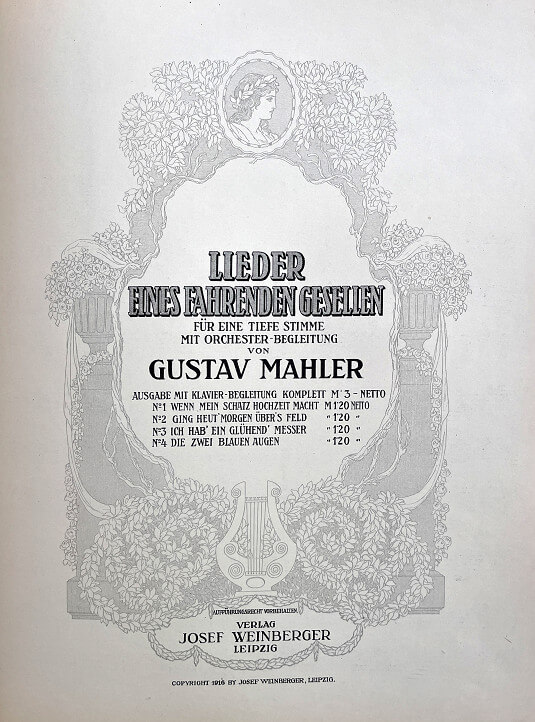
Networking and the Operetta Boom (1901–1913)
In 1901, Josef Weinberger co-founded Universal Edition (UE) and served as its managing director until 1906. UE was initially based in the Weinberger House on Maximilianstraße. At the same time, the publishing house continued to expand its own catalog: it acquired the stage rights to the works of Johann Strauss (son) and signed Edmund Eysler, Ermanno Wolf-Ferrari, and the young operetta stars Franz Lehár, Leo Fall, and Emmerich Kálmán—names that soon made Weinberger Verlag synonymous throughout Europe with the “Golden Age” of Viennese operetta.
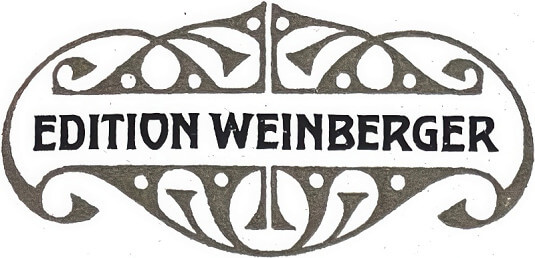
World War I and the interwar period (1914–1932)
World War I forced the company to slow down its international expansion, but by the 1920s, new successes—such as Kálmán's Gräfin Mariza (Countess Mariza, 1924)—provided strong impetus. When Josef Weinberger died in 1928, his nephew Otto Blau (1893–1980) took over the management of the publishing house. The repertoire now included works from Smetana to Mahler to Strauss and had developed into one of the most important operetta catalogs in Europe.
Persecution, Emigration, and the London Foundation (1933–1945)
With the Nazis' rise to power, the Jewish-run company came under increasing pressure. With wise foresight, Otto Blau founded Josef Weinberger Ltd. in London in 1936, which was managed by Hugo Golwig. After the “Anschluss” in 1938, the Vienna headquarters were “aryanized” and dissolved in 1941, and the publishing house moved to Berlin. Blau escaped via Great Britain to Australia, while the business was placed under forced administration from Berlin. In London, however, the stage and performance rights to the operettas remained intact, so that the publishing house largely survived the war economically.
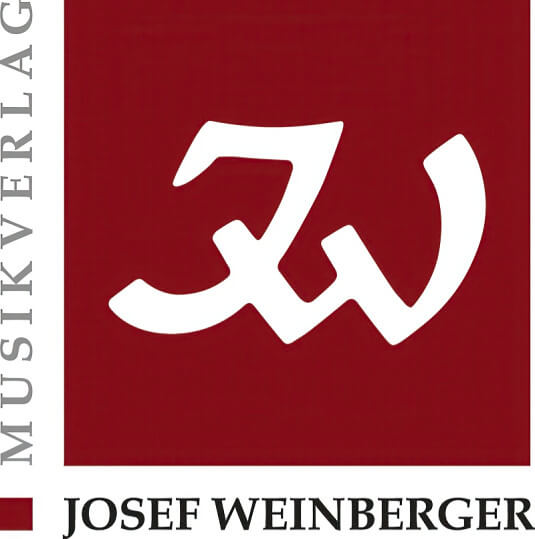
Reconstruction in Vienna and new locations (1946–1968)
Immediately after the end of the war, Otto Blau returned to Vienna and reactivated the company there together with Johann Michel, who had already been active in the music publishing industry before the war. In 1946, the Vienna office was reestablished, and in 1947, the company returned to its historic premises on Mahlerstraße. In the early 1950s, a branch office was set up in Frankfurt am Main to coordinate the rapidly growing German-language licensing business. Since then, Vienna, Frankfurt, and London have operated as equal sister companies.
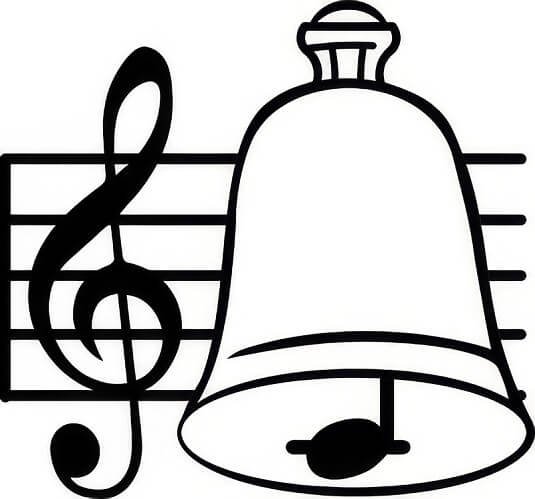
Diversification and catalog expansions (1969–1990)
A significant step was the takeover of Glockenverlag (1968). This gave Weinberger exclusive worldwide administration rights to the entire Lehár catalogue. At the same time, the company expanded its repertoire to include symphonic music, choral literature, and educational works, and participated in the founding of specialized sub-publishers, now also in the pop and jazz sectors. This period saw, for example, the creation of the Pagageno Musikverlag with works by Friedrich Gulda and the founding of the record production company WM Produktion in Vienna. Through collaboration with the German Unitel-Beta-Film Group, numerous operettas were also adapted into feature films.
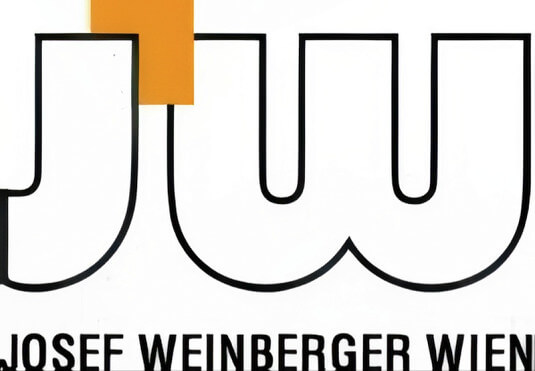
Internationalization (1991-2009)
After the fall of the Iron Curtain, the Eastern European market opened up. At the same time, Weinberger London established cooperation with the internationally renowned stage publisher Music Theatre International and brought Broadway musicals by Stephen Sondheim, Alan Menken, and others to European stages. Also, Ring Musik was founded in Frankfurt as an independent production music company, which holds the licenses for over 60,000 tracks for film, TV, and adverts.
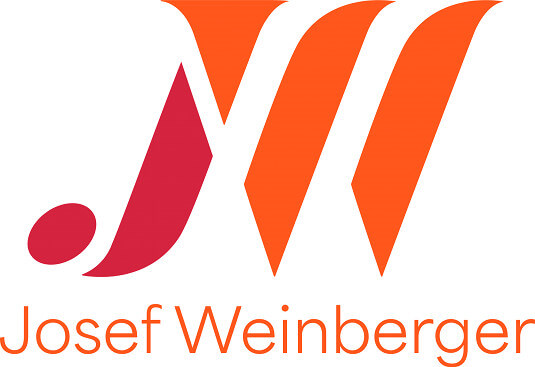
Digital transformation (2010–present)
Since the 2010s, all three locations have been investing in e-sheet portals, print-on-demand, and cloud-based performance materials. A specially founded Composer Lab also promotes young composers, while teams of curators are revising the historical operetta editions. Close cooperation with the stage publisher Musik und Bühne (Wiesbaden) and the jointly founded publishing house Stückekontor have also created a platform for the development of new musicals.